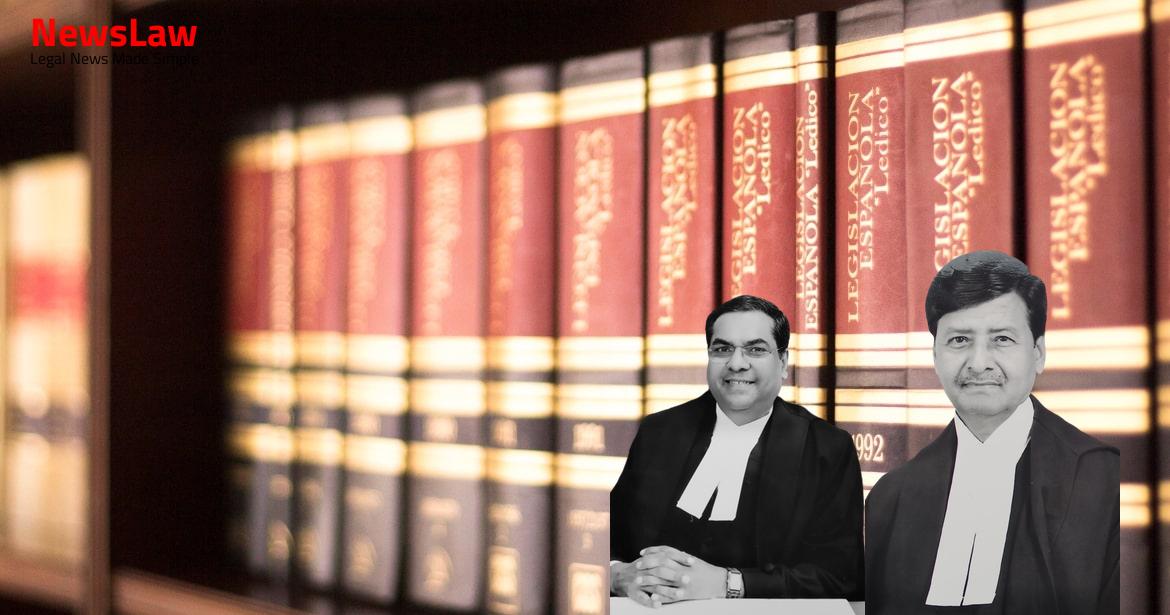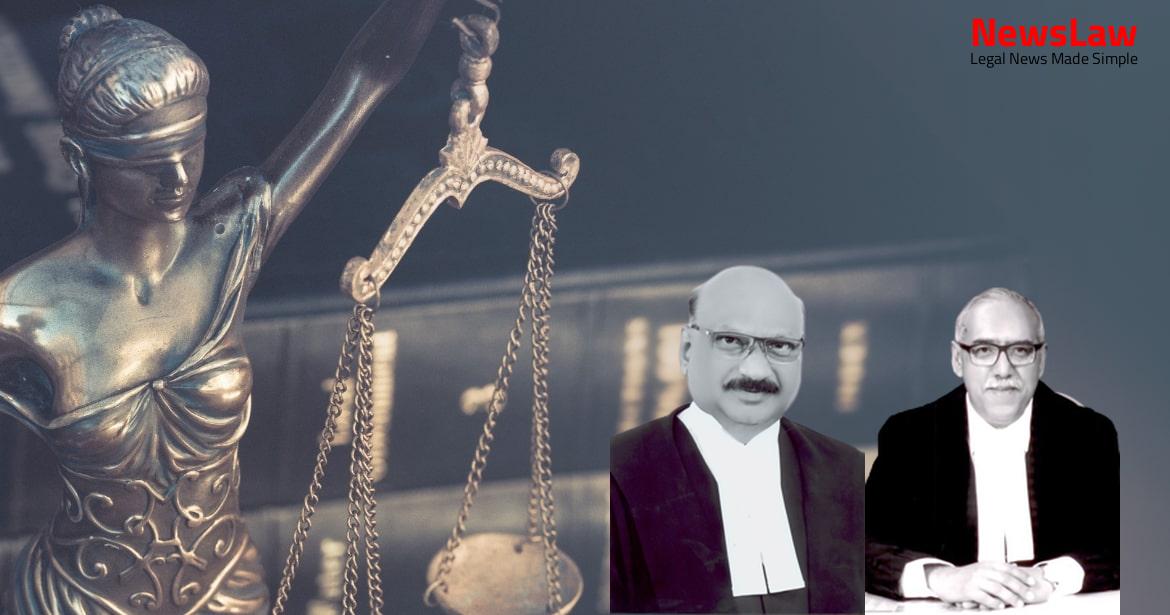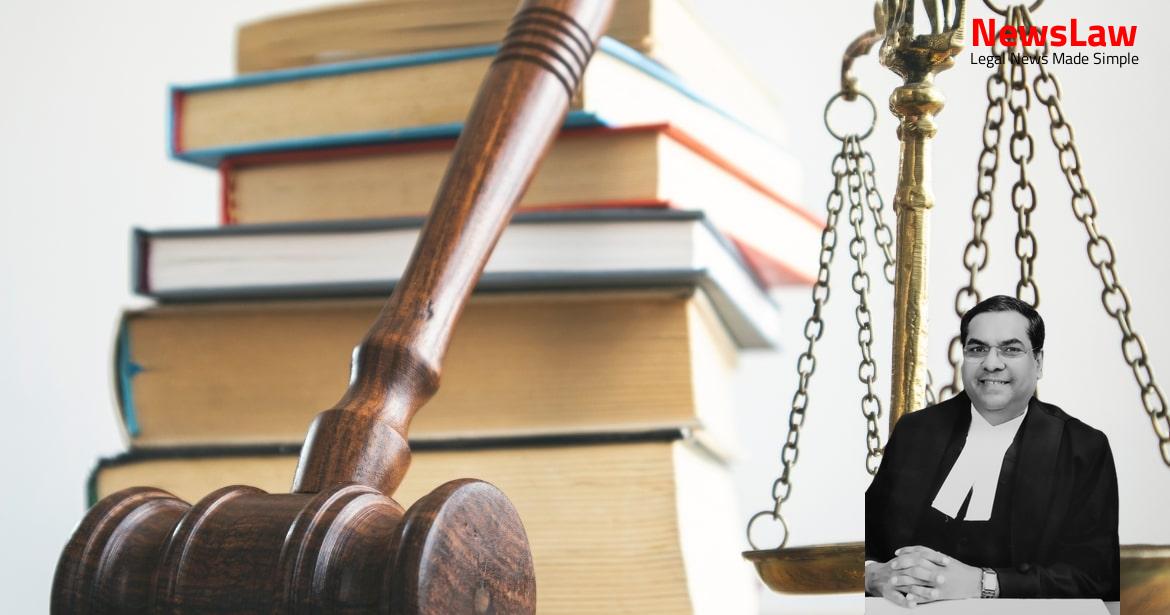Delve into the detailed legal analysis by the court regarding the condonation of delay in arbitration objections. The case delves deep into the intricacies of arbitration laws and the significance of timely filings in legal proceedings. This blog post sheds light on the critical examination done by the court in determining the validity of the objections raised. Stay tuned to unravel the complexities of this legal matter.
Facts
- Scope of work was enhanced to Rs.40,23,962/- and then to Rs.45,87,326/-.
- Appellant claims respondent failed to comply with contract terms while respondent blames appellant for the delay.
- Respondent filed for arbitration under Section 11(6) of the Arbitration and Conciliation Act, 1996.
- Arbitrator awarded Rs.1,19,69,945/- to respondent with interest on delayed payments.
- Contractual work completed on 24 August 1999.
- Agreement between Haryana Urban Development Authority and Mehta Construction Company for construction work in Karnal.
- Appellant filed objections to the award under Section 34 of the Act in March 2014.
- The respondent proved the issues with convincing evidence, leading to the dismissal of the appellant’s objections under Section 34 of the Act.
- The District Judge found the arbitration award of 20.12.2013 to be legal and perfect, with no proven infirmities.
- The respondent’s completion of work after thirteen and a half months indicated non-compliance with contract terms despite extensions granted by the appellant without penalties.
- Time was of the essence in the contract due to a default clause.
- The appellant’s appeal under Section 37 was dismissed by the High Court on 11 December 2019.
- The objections were considered barred by limitation and not maintainable as they were filed beyond the prescribed period, with no plausible explanation for the delay.
Also Read: Admission Deadline Adherence in Medical Courses
Arguments
- Counsel for the appellant fails to point out any perversity in the findings returned by the court below.
- Counsel for the appellant failed to demonstrate how the objections filed by the appellant were within the limitation.
Also Read: From Nominee to Disqualified: Supreme Court Scrutinizes Age Evidence, Declares Election Invalid
Analysis
- An application for setting aside an award must be made within three months from the date of receiving the arbitral award or from the date the request under Section 33 has been disposed of by the arbitral tribunal.
- The court may condone a delay of up to thirty days in filing objections under Section 34(1) if there is sufficient cause preventing the applicant from making the application.
- Section 34(2)(a) allows the court to set aside the arbitral award if it is found to be vitiated by patent illegality on the face of the award.
- The objection that the claims of the respondent were barred by limitation was raised.
- The reasoning given by the High Court in the impugned order was criticized for its generalization and lack of specific addressing of issues raised by the appellant.
- The short delay in filing objections was due to the need for sanctions and approvals from higher authorities.
- The application for condonation of delay was supported by the time taken to engage a lawyer and examine arbitration case records.
- Sub-sections of Section 43 of the Act concerning the application of the Limitation Act to arbitrations were highlighted.
- Considerations such as the date of arbitration invocation, delay in filing applications, and legal consequences of delays were mentioned.
- The High Court and Additional District Judge’s refusal to condone the delay in filing objections was criticized as unjustified.
- The application for condonation of delay should have been allowed.
- Cryptic and perfunctory findings in the Additional District Judge’s observations were noted.
- The court had the power to condone the short delay, less than thirty days, in accordance with the proviso to sub-section (3) of Section 34 of the Act.
- The proviso stipulates that the award shall not be set aside merely on the ground of erroneous application of law or misappreciation of evidence.
- Objections under Section 34 of the Act required proper consideration and in-depth examination before dismissal.
- The orders dated 11 December 2019 passed by the High Court and 8 January 2018 passed by the Additional District Judge, Karnal are set aside.
- An award can be set aside under sub-clause (ii) to clause (b) of Section 34(2) if it is in conflict with the public policy of India.
Decision
- The appeal has been allowed with no order as to costs.
- The matter is remitted to the file of the Additional District Judge, Karnal.
- The Additional District Judge is directed to hear the objections afresh and on merits without being influenced by earlier orders or the current order.
- The observations in this order are only for the disposal of the present appeal and are not binding on the Additional District Judge, Karnal, for the examination and decision of objections under Section 34 of the Act.
Case Title: HARYANA URBAN DEVELOPMENT AUTHORITY KARNAL Vs. M/S. MEHTA CONSTRUCTION COMPANY (2022 INSC 373)
Case Number: C.A. No.-002693-002693 / 2022



